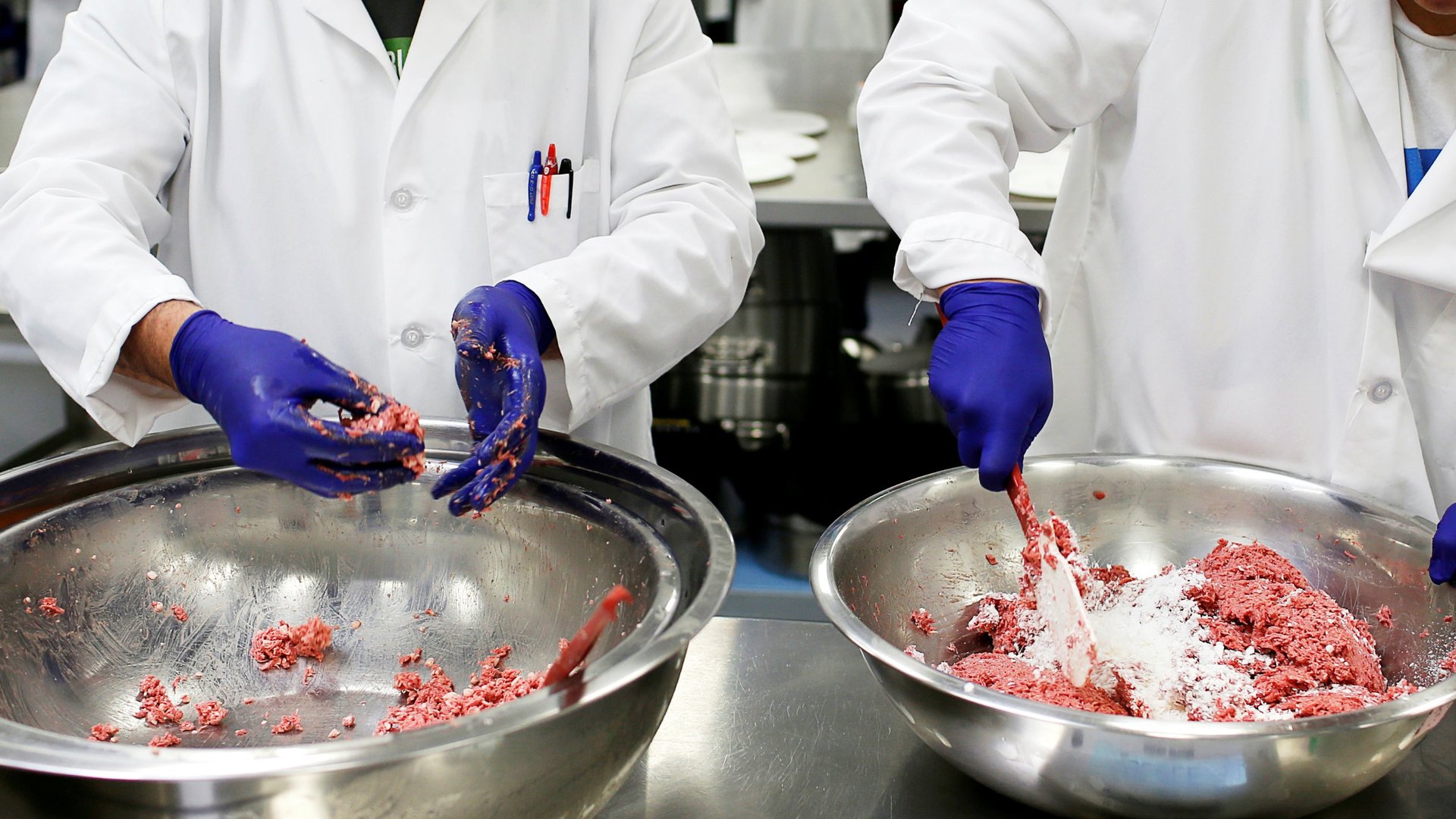Plant-based meat companies have an identity crisis on their hands
The biggest problem for plant-based meat companies might be the very thing that defines them. For years, they’ve worked to create products that look, feel, and taste just like conventional meat—but now that they’re finding success in the market, they stare down the very real possibility they won’t be able to use the word “meat” on their product packaging at all.


The biggest problem for plant-based meat companies might be the very thing that defines them. For years, they’ve worked to create products that look, feel, and taste just like conventional meat—but now that they’re finding success in the market, they stare down the very real possibility they won’t be able to use the word “meat” on their product packaging at all.
It’s something Los Angeles-based food company Beyond Meat is thinking about as it looks to go public, according to a US Securities and Exchange Commission filing by the company this week.
As Beyond Meat prepares to expand, its executives are keeping a close eye on the growing, meat industry-backed movement in statehouses across the country aimed at preventing companies like it from using the word “meat” or “misrepresenting” a product as meat at all. That movement has gained steam in recent weeks, as bills have been passed in Missouri, Arkansas, and elsewhere to curb the companies from using the term. Enough states have now adopted such measures that Beyond Meat sees the movement as a legitimate threat to how it does business.
“Should regulatory authorities take action with respect to the term ‘meat’ or similar terms, such that we are unable to use those terms with respect to our plant-based products, we could be subject to enforcement action or recall of our products marketed with these terms,” the company wrote in its filing. “We may be required to modify our marketing strategy, and our business, prospects, results of operations or financial condition could be adversely affected.”
It’s unclear whether the laws would affect Beyond Meat’s own name.
The company’s chief competitor, Impossible Foods, will also face some marketing headwinds if the movement to pass such legislations continues to gain steam. Patrick Brown, the CEO of Impossible Foods, has in the past made the case that his plant-based products are, in fact, meat because, in his view, meat is less about how the product is produced and more about the experiences people have when eating it (its taste, texture, etc.).
“What consumers value about meat has nothing to do with how it’s made,” Brown told Quartz last year. “I mean, animals have just been the technology we have used up until now to produce meat, which is a food that is defined by its flavor profile, its sensory profile, its nutrition, utility, and stuff like that.”
The meat industry likely has qualms with that point-of-view.
The trend of politicians and meat industry representatives haranguing companies hoping to make meat-like products out of plants isn’t limited to the US. In the European Union, government officials have also moved to stop these meatless companies from using “meat” on their labeling.